
Túsztárgyaló

Misi (öreg)
A story about a boy and a girl in a mental hospital.

The Buharovs, as the harbingers of a supra-human world, blend their instinctive cosmos with a kind of quiet poetry to lead the viewer into the Land of Warm Waters and onwards to new dimensions of storytelling.

Tanácsos

Károly
Gergő’s mother is obsessed with having a grandchild. She has a serious heart disease and has only days left to live. To give his mum some joy during her final hours, Gergő asks his neighbour Saci, who is five months pregnant, to visit his mother in hospital with him and tell her that she is carrying his child. It all goes smoothly, but a new heart arrives, and his mum is operated. Therefore, Gergő and Saci are forced to play the roles of the loving couple.
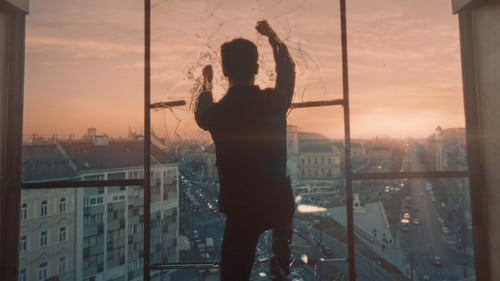
László
Al intentar cruzar ilegalmente la frontera, el joven emigrante Aryan es disparado, y la herida le otorga el poder de levitar. Con la ayuda del doctor Stern, logra escapar de un campo de refugiados. Fascinado por los superpoderes de Aryan, Stern ve la oportunidad de explotar el milagro. Kornél Mundruczó presentó en Cannes este thriller en el que lo sobrenatural se mezcla con una de las grandes tragedias contemporáneas.

Pócs Gábor
Drop dead please! Following the sudden death of a mysterious engine driver in his sixties, the Wife, the Lover, her illegitimate Daughter and an increasing number of shady characters from his spurious past want to know the true identity of the man they loved. They are dying to know which of them was really loved by him, and where he has hidden the fantastic fruit of his double life. In their deadly struggle, our heroes find themselves in the center of a satirical crime comedy, the sinful roots of which stretch back to the eighties, the closing decade of the socialist era.
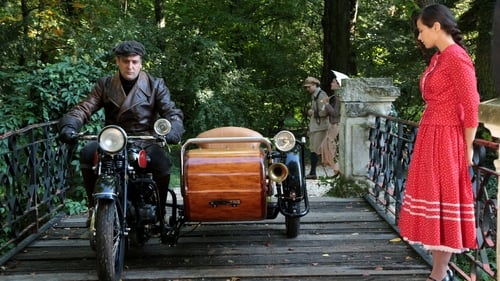
Jóska apja

Andor
Andor Czettl, in his early sixties, visits the secret service archives one day to read into the reports about himself and discovers a shocking fact. His very best friend János Pásztor was an informer, spying on him and writing reports about him for decades. Sára Cserhalmi's first feature focuses not so much on the actual problem of informing and betrayal as on the contradictory relationship of the two protagonists. It avoids any final judgments. First and foremost, it seeks answers to questions like how an informer can live in our present times and how the one being reported on can cope with this state. Can a close friendship that began decades ago last if such betrayal comes to light? How can someone live and cope with this fact?
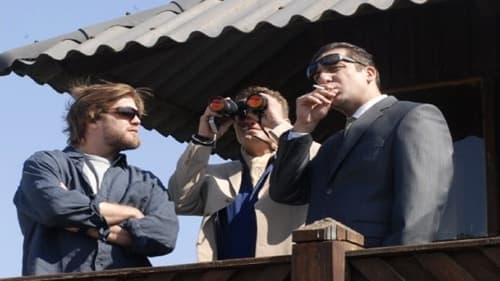
Bencze Gábor
Small-town politics (corruption etc.) in Hungary.
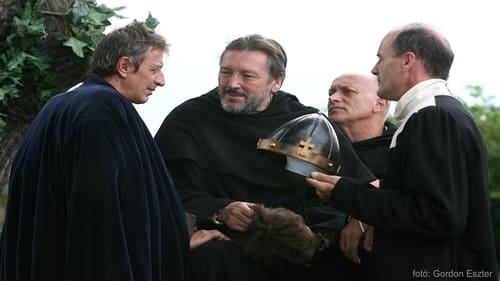
Kinizsi 1 / Mihály Szilágyi
Concerning the Mátyás era in Hungarian history, during the reign of Matthias Corvinus (1443–1490), the film focuses on three eras of the king's life: the young Mátyás fights for the throne, the older Mátyás as king, and the fate of the royal crown and the royal heir after his death.

Kinizsi 1. / Mihály Szilágyi
Concerning the Mátyás era in Hungarian history, during the reign of Matthias Corvinus (1443–1490), the film focuses on three eras of the king's life: the young Mátyás fights for the throne, the older Mátyás as king, and the fate of the royal crown and the royal heir after his death.

Uncle Faragó
Péter, a literary critic, is tasked by the secret police to persuade Social Democratic politician, Anna Kéthly, who has been living in exile for decades, to return home.

Lajos
The aging Eszter clarify outstanding relationship.

Jablonczay Kálmán
In the second half of the 1800s, the daughter of a Debrecen family marries a landowner, Kálmán Jablonczay. The couple move to the husband's castle. The marriage starts off happily but the new wife, Mária Rickl, soon finds herself at odds with the gentry lifestyle, her husband and her father-in-law...
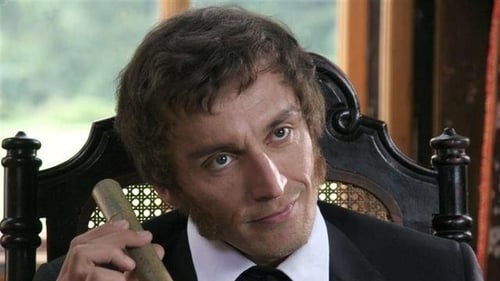
Count Tarnai
1839. The discontented noblemen assemble at the country estate of count Gábor Falussy, on the pretext of a boar hunt. Also an English engineer arrives for the sake of constructing the railway line leading up to the count’s quarry.

Misu

Zoltán
Two stories running in parallel: In one, a model is surrounded by men wanting to use and abuse her though, without realizing it, she is protected by a strange tramp guardian angel. In the other, a blind goldsmith struggles to produce his latest commission in the midst of his alcoholism and depression. Both then descend further and further into their own personal hells until they finally re-find peace with themselves and then their stories briefly merge.

Doctor
One of the doyennes of Hungarian film deals with a dark period of national history: the Soviet regime in Hungary. She portrays it through the fate of the former prime minister and national hero, Imre Nagy. The script is based on the diary written by Imre Nagy, and the memories of his daughter, Erzsébet Nagy, as well as authentic documents and records.
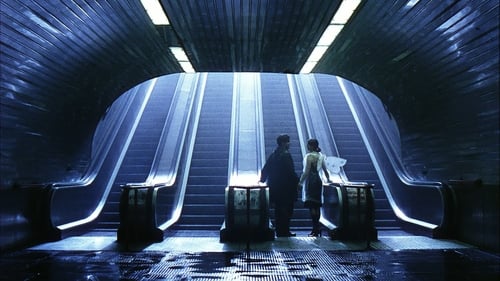
Big Boss
'Kontroll' narra la historia de la difícil -y ficticia- relación entre los pasajeros y revisores en el metro de Budapest. En ese submundo aparecen personajes como "Roadrunner", quien aparece una y otra vez y se considera miembro de la Sociedad de Liberación de los Pasajeros, dedicándose a manchar a los revisores con spray; éstos lo persiguen acaloradamente por los pasillos, andenes, ascensores, aunque todo esfuerzo es en vano. También está Béla, el maquinista caído, quien se siente tan cómodo en el mundo de parias como Bulcsú. Y está Szofi, su hija, de quien inmediatamente se enamora Bulcsú, incluso a pesar de que viste un disfraz de oso. Aunque también hay una figura sombría entre ellos, una máquina de matar. Nadie sabe quién es. Quizá sólo Bulcsú lo sabe.
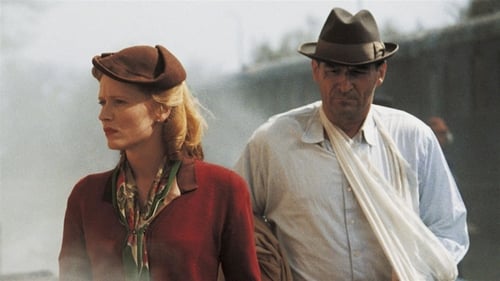
Joza
1940, Segunda Guerra Mundial. Checoslovaquia ha sido ocupada por los alemanes. Eliska, una estudiante de medicina, no puede completar sus estudios porque han cerrado las universidades, y trabaja como enfermera en un hospital de la ciudad. La joven también está involucrada en el movimiento de la resistencia contra los nazis, al igual que su novio, el cirujano Richard. Una noche, un hombre de las montañas es traído al hospital con serias heridas, necesitando desesperadamente una transfusión. Eliska es la única con su mismo tipo de sangre... una sangre que le salva la vida y forjará una extraordinaria relación entre la moderna, cosmopolita y educada Eliska y el rudo y bárbaro Joza, un hombre del campo con alma de niño....

Detective Sebők is shot at by a fleeing criminal and then pushed off the road. Sebők breaks his leg. Left by his wife, pensioned by his boss on the basis of false reports, he has a clash with banker Gömöri at the colonel’s party.

Miklós Wesselényi
Un inconformista noble del siglo XIX lucha para liberar su país de un imperio extranjero. Pero los Habsburgo de Austria, no son el único oponente que el Conde Szechenyi tendrá que combatir. Luchando contra el destino, la historia y el amor, su vida privada se verá inseparablemente mezclada con el desorden público de una era cambiante. Entonces empezará a aprender que su mayor oponente es su propio corazón.

The general
1942. Owing to a stolen mink coat, Süti, the young poet and journalist, gets acquainted with Katalin, the idolated singer. Before being drafted to labour service, he shows the actress the song he composed for her, entitled Smouldering Cigarette.

The sixteen year old Bea is on her way home from her sports class when a foreign long- vehicle stops by her and she is asked the way. A shove, the banging of the door, and the long-vehicle pulls away with its victim towards the South. Beas abductors rape her and sell her as a prostitute. She tries to escape, keeps leaving marks behind, hoping that her beloved father, Sándor, will find her.

Szipák Béla
The Witness (Hungarian: A tanú, also known as Without A Trace), is a 1969 Hungarian satire film, directed by Péter Bacsó. The film was created in a tense political climate at a time when talking about the 1950s and the 1956 Revolution was still taboo. Although it was financed and allowed to be made by the communist authorities, it was subsequently banned from release. As a result of its screening in foreign countries, the communist authorities eventually relented and allowed it to be released in Hungary. It was screened at the 1981 Cannes Film Festival in the Un Certain Regard section.[1] A sequel was made in 1994 named "Megint tanú" (English: Witness Again).

Enikős and Dorkas marriage is unbearable. Hysterical, cruel and humiliating scenes are enacted in front of the childrens eyes, while the childless Barbara is held by her husband, the painter, to be a toy and sometimes a painting screen.

Sledovatelyat
The film depicts the incredible metamorphosis of a clerk whose sense of identity and pride are reawakened by an unexpected development.

Felicián György
Ambrus, the canon pretender and Gerzson, the stinking rich lawyer, taking advantage of a sect and a fake hospice, are engaged in doing unsuspecting old people out of their money.

Az Író

When Hungary's newest prime minister is shot and killed at a reception, the resulting investigation is necessarily swift and comprehensive. This compelling political thriller uncovers two prime suspects: the woman who guns the leader down, and a man who was friends with both the prime minister and his murderer. Using video surveillance footage, as well as other more artful and symbolic imagery, the noted "visualist" director Miklos Jancso, who is known for his craft in getting his points across non-verbally, combines fantasy and reality in a highly ironic manner.
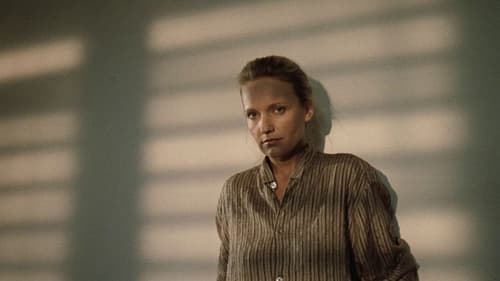
Viktor
A wonderful dark tale of coming of age in a country in transformation - then Czechoslovakia (now Slovakia) in 1990s. Against the backdrop of a regime change and general crisis of basic values, a young man is finding his way into adult life. Playing a part in a love (hate?) triangle he does not fully understand until the conclusion, he desperately tries to make sense of the unpredictable behavior of the other two main characters which is linked to the secrets lurking in their past. All this while he is not sure about his own role in a world where yesterday's truths mean nothing today. Brilliant actors in a brilliant film that even gives you a glimpse of hope at the end.

Horváth Imre
Imre Horváth and his friends gather to celebrate his wife's birthday. They are confused because of the changes in the country's politics and want Horváth to be much more active politically, but he is more concerned about his affair with his best friend's daughter.

Zorka
At a dusty crossroads in the Soviet Union villagers surrender their possessions - a horse, a samovar, a goat - to the state. The train which takes them away brings to the village a physically and mentally handicapped woman, barely able to speak. She makes herself bracelets of burrs and studies herself in a cracked and cloudy mirror. Befriended by very few, teased and tormented by many she seeks protection at a huge portrait of Stalin. "by: rosej-1"

1958. In the cell of the condemned, seven men await the signs of an approaching execution. All of them recall their pasts and envision their wish-dreams.

Jozef K.
Jancso emphasizes highly evocative and ambiguous imagery over dialog or exposition. Here he seems primarily interested in showing the painful, stunted lives of Hungary's intellectuals, who are shown as remaining silent and ineffectual during various political crises. There are several action sequences involving chases and shootouts, but since there's no clear narrative we're not sure how they relate to each other or to anything else. The film is, however, visually fascinating, with shots of police cars, horses, and naked bodies juxtaposed and extensive use of multiple video imagery.
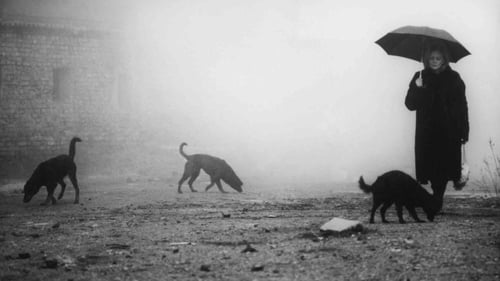
Sebestyén
Karrer lleva una vida retirada en una población minera. Las tardes las pasa siempre en el bar Titanik, cuyo dueño le propone participar en una operación de contrabando, pero él prefiere cederle ese trabajo al marido de la cantante del bar.
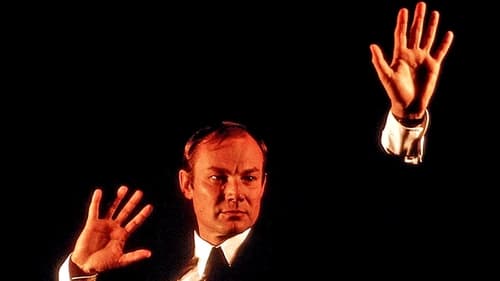
Count Trantow-Waldbach
A finales de la Primera Guerra Mundial, Klaus Schneider se recupera de sus heridas en un hospital. El médico que le atiende descubre que está especialmente dotado para la hipnosis y la adivinación y decide ayudarlo a desarrollar esas facultades. Años más tarde, Klaus se traslada a Berlín, cambia su nombre por el de Hanussen y ejerce de adivino e hipnotizador. Llega a predecir el auge y el trágico final del Tercer Reich, lo que lo coloca en una delicada situación.
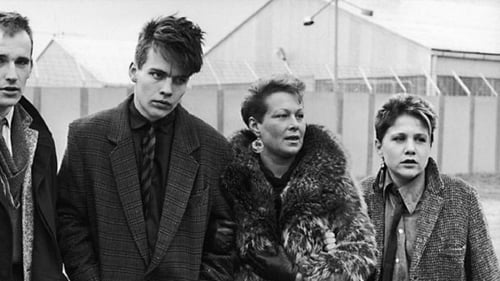
Cserhalmi György

Tölgyesi's brother-in-law
Frigyes, shortly after immigrating to New York City from Hungary, leaves his family for the pleasures and gratifications of being a street bum. But as time goes by, the appeal of this lifestyle wanes. A series of adventures with other drifters reaches a dramatic conclusion when some thugs murder one of them. This startling event forces Frigyes to come to terms with his current situation and decide whether to return to the family he abandoned.
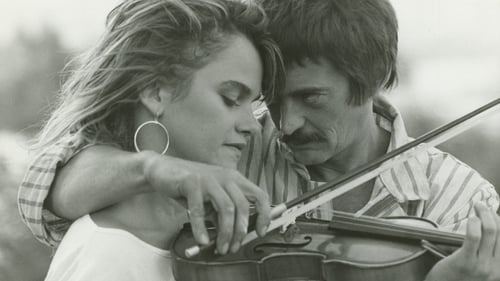
Dr. Bardócz
Zoltai is a Hungarian professor who returns home after a visit to the United States. Following a television interview, he commits suicide and leaves a note for his longtime friend Dr. Bardocz. The doctor and Zoltai's colleague Komindi join the police in investigating what drove the man to suicide.

Hódosi András
From the intrigues and slander of the branch the painter Hódosi moves out to a hamlet at Hortobágy. He gets into conflict situation as well as he cannot endure that the political and economic elite of the neigbourhood would devastate the nature conservation area with hunting and (tax evading) goose husbandry.

1629, Transylvania: Reigning prince Bethlen Gábor has Don Diego, the Spanish chronicle knight be brought to his court in order to make him record his life and deeds for posterity.

Szepessy István báró
The hero of the story that takes place at the beginning of the nineteenth century and recalls real historical personages is Akli Miklós, the court jester of Emperor Ferenc.
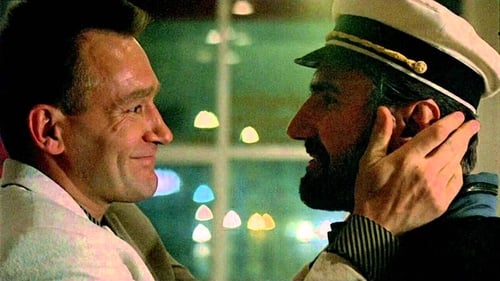
Réb
Réb went to the United States about 20 years ago and in the eighties he returns to Budapest with his teenager daughter...

1956. Bébé is a painter, but he has not worked for years. The news arriving form Paris about the death of his childhood friend, Halász Petár affects him deeply, but his reflections are continually disturbed by telephone calls: the Alliance for Fine Arts wants to purchase one of the popular self-portraits of Halász.

Alex gróf
The heroes of this story, based on real events at the end of the 1930s and during World War II, face and dismiss the illusions of intellectuals about their ability to transform society. Professor Magyary and his disciples hoped to promote the modernisation of Hungarian society through a radical reform of public administration.

Majláth Ferenc, huszárfõhadnagy
The seeming hopelessness of combatting an all-powerful government that will not tolerate political dissension is the focus of this excellent historical drama set in the mid-19th century in Hungary. In the opening scenes, Hungary has just lost its bid for independence from Austria and a Magyar officer, unable to bear the tragedy of defeat and what it means, says an affectionate good-bye to his beloved horse and then shoots the animal and himself. Two years later, Ferenc (Gyorgy Cserhalmi) is trying to eke out a living for his wife and her family -- and at the same time avoid any hint of sympathy for Hungarian independence because the Secret Police are everywhere. Just as life seems to be going well, Ferenc's former commanding officer (Lajos Oze) arrives and begins discussing revolution again -- a futile pursuit at this point in time. The next day, Ferenc is thrown into an insane asylum and everyone else is arrested as well.

Jones
A story of a young student of medicine, who arrives in a small mountain village after being accused for carrying out illegal abortion. The film reflects the moral decline of the society, where stealing in secret and making compromises against one's beliefs make up mundane reality. The filmmakers went to perhaps the furthest possible limits in terms of allowed social criticism in the 1980s. The negative picture is enhanced by its rural setting, since the Slovak village had been traditionally associated with strict morals and conservative values.

Captain Simonffy
When hunting, Zrínyi Miklós finds an Angel with a broken wing. He takes him for a heavenly message and carries him to his castle for cure. Lords and priests come to Zrínyi's court, one after the other, to see Angel. The occasion is appropriate for the ban to win them over to his plan: they should unite their forces to fight for the country's independence.

1894. The mortal remains of Lajos Kossuth are brought home from abroad, the railways are lined with people with their hats in hand, and among them stands the teenager Imre Tányér. 1910. The grown-up Imre undertakes the task to solve the question unsolved since 1848-49, i.e. the transformation of peasant life. He fights for the rights of his class, for justice, for human dignity in a society distorted, backward and built on inequality.

Vera is an engineer and a young divorcée. She is pretty, lonely, and has a boyfriend, Tamás, whom she is dating secretly on a certain day of the week at the week-end house of one of their friends, as Tamás has a family and does not intend to divorce his wife. Vera would like their relationship to be publicly acknowledged.

Macbeth
A Hungarian TV version of the play shot in just two takes.

Simon József
Two old women who happen to be pickpockets stole money from Simon, the taxi driver. The police are unable to find the thieves, so Simon decides to find them himself.

Henchman of the hunter
Vuk es el pequeño de una familia de zorros al que su madre acurruca con sus hermanos para el descanso nocturno, mientras el padre aprovecha la oscuridad de la noche para salir a cazar. El pequeño Vuk siente curiosidad por saber cómo se las compone su padre para conseguir el alimento que los sustenta... y sigilosamente abandona la madriguera para seguirle. Esta travesura hará que se pierda en el bosque y le salvará de una muerte segura, pues el implacable humano ha dado con la madriguera del zorro acabando con sus padres y hermanos. Triste y solo en el bosque, Vuk tiene la suerte de encontrar a su tío Karak, quien se hará cargo del pequeño enseñándole todo lo necesario para subsistir y previniéndole de la maldad del humano, que no mata sólo para sobrevivir sino también por placer...

Una confusa exposición sobre el Poder y su apariencia, el poder real y el poder imaginario, centrada en el siglo XV en Hungría, en una de las muchas épocas en que los húngaros estaban dominados por un rey extranjero. Un castillo es el lugar adonde regresa Gaspar, hijo de un noble húngaro, después de haber pasado desde su niñez a su adolescencia en Bolonia; Gaspar regresa acompañado de unos actores. Su padre -le dicen- ha muerto en las garras de un oso; su madre ha quedado muda y parece sorda, pero acaso para reponerse de la impresión y conservarse siempre joven sacrifica cada noche una doncella, y sus tíos, un arzobispo y otro enamorado y amante de su cuñada, están empeñados en que el joven Gaspar alcance a ser Rey de Hungría.

Fanyüvö / Vasgyúró / Kömorzsoló (voice)
En este mito popular húngaro, una deidad en forma de yegua da a luz a un hercúleo ser que se adentrará en el inframundo para salvar a tres princesas de tres dragones malvados con la intención de recuperar el reino perdido de sus antepasados.
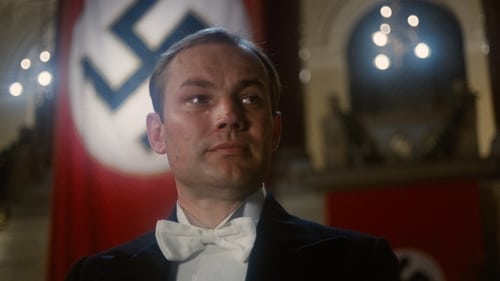
Hans Miklas
Un ambicioso actor de teatro (Brandauer) no duda en concentrar todos sus esfuerzos en adular el nazismo con tal de lograr el éxito en su profesión. Llega incluso a casarse con la hija de un importante prohombre del régimen para poder medrar.
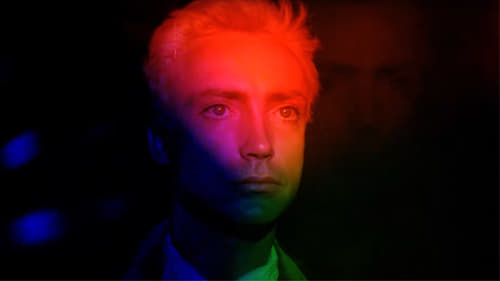
Maximilian Freiherr von Zedlitz
Narcisus and Psyche is based on a novel by Sandor Weores which was adapted by Vilmos Csaplar and director Gabor Body for a feature-length film. Borrowing the character of Psyche from mythology and placing her in Europe in the 19th century, the authors give her a "modern" life. She is an attractive young woman - and remains so throughout the film, in spite of one hardship after another. Psyche is libidinous, and her prurient interests shock her staid contemporaries.

Hafra, a néma
1852. Gáspár Noszlopy escapes from prison in order to capture the emperor, who is to visit Hungary, with his companions and force him to sign the Declaration of Independence. He is only able to find four fanatic men, as his one-time soldiers have already accepted the established order as unalterable, each of them having found a satisfactory way of life and unwilling to undertake a suicidal experiment.

Zsadányi István
Zsadányi flees from the authorities with his goddaughter, Bankós Mari, and they escape into the forest. The film then skips ahead thirty-fold years: Zsadány and Mari are now lovers, with the sound of war in the background halting their romance. The old friends of Zsadányi have joined with the Nazis, and the landowner living with his peasants in a socialist community grows distant from them. Zsadányi is held responsible for political problems in the country, and will pay with his life.
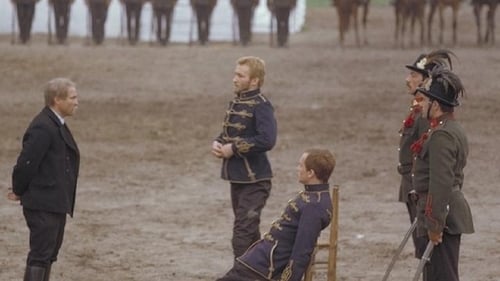
Zsadányi István
The movie portrays a peasant revolt in Hungary in the early twentieth century.
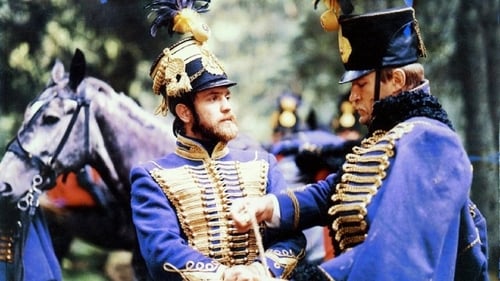
Csorgás István
The film tells the story of a regiment of Hungarian hussars stationed in Poland. The hussars, mostly ordinary men, have heard news of the uprising and wish to return to the homeland to defend the newly independent country. The Empire, on the other hand, is firmly resolved that all Hungarian troops in the imperial army should be kept as far away from the trouble spot as possible, knowing that most soldiers would be loyal to Budapest rather than Vienna.

Kelepei Jenö
A brothel in a small Hungarian town becomes the home of a medical student after his favorite working girls find out he's out of rent money. Trouble brews as they learn his mother is coming for a visit and they must transform the house.
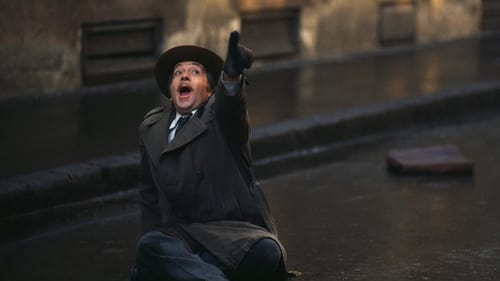
Haldokló kommunista
Ambientada en Budapest a finales de la Segunda Guerra Mundial. Un grupo de amigos dialogan una noche en un bar. Uno de ellos propone un dilema moral: Si volvieran a nacer, qué preferirían ser, un cruel rey que comete todo tipo de atrocidades o el esclavo que las padece..

One day Novák Erzsébet kindergarten-teacher destroys her papers, cuts her hair and closes her mouth forever. She prepares for suicide namelessly, then somewhere around Normafa she accepts being taken into an asylum.

Jeles Matyi hangja
György Szomjas’s first feature—made after a decade of short documentaries—is a bold attempt at a goulash western, set on the puszta, or Great Hungarian Plain, in 1837. Mixing Miklós Jancsó imagery and a Sergio Leone narrative, this ballad-like saga opens with image of a lone horseman on the empty plain, riding past a rude gallows. The film concerns the vengeful return of a legendary betyár (outlaw), briefly a hero to the local herdsmen who oppose the state building a canal across their grazing land. Although Szomjas works from ethnographic records and archival material, it is hardly surprising that this violent, primitivist film would be more popular with Hungarian audiences than critics. Replete with young guns, crooked sheriffs, tavern brawlers and hardbitten plug-uglies, this widescreen film is strikingly shot by Elémer Ragályi (cinematographer for most of Gyula Gazdag’s films)—a feast of loamy, autumnal colors.

Kaszperek Mihály / Csernyiczky Mihály
A ghost is haunting Lubló: Kaszparek Mihály, trader of wines, does not refrain from haunting his native town even in broad daylight. He rides his horse sitting backwards, pays with false gold and pays frequent visits to his widowed wife, who is far from being appalled by the caresses of her dead husband.

Ambrus András
While awaiting his release from the Soviet detention camp he is being held in, a half-starved refugee (Andras Ambrus) finds that an error has been made and his name is not on the to-be-released list. It is then that he is forced to assume the identity of a dead man whose name is on the list. Ambrus at first refuses, but because he was an orphan and cannot produce evidence of his true identity, he has no other choice. However, when he returns to the outer world and the community he was raised in, he is greeted with suspicion. When he tries to claim his part-ownership of a farm from his adopted uncle, he is refused and beaten by farmhands the uncle sets on him.

This lavishly spectacular film focuses on the character of Lorinc Parcen Nagy from the 1200-page Tibor Déry novel interwoven with numerous autobiographical elements. Lorinc Parcen Nagy is the offspring of an upper middle class family, whose life is marked by two violent deaths: the suicide of his father and the slaughter of an innocent worker. He breaks with his family and his mother in disgust; she is of weak character, a person who abandoned her own husband. He is also unable to discover the right tone with his colleagues and his lover who is an illegal party worker.

The film takes place at the end of 1946. Rumours are spread that the food supply will not arrive for it has been robbed. Workers of the metal factory go on strike.
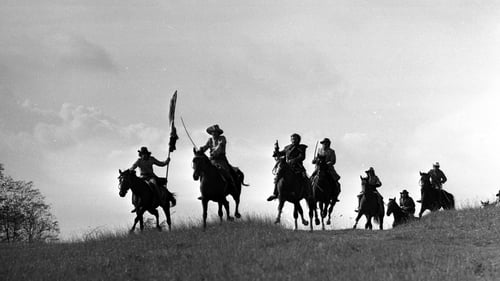
Vereczky Ádám
The film depicts the lives of veterans of the 1848 Hungarian Revolution in the American Civil War, based in part on an Ambrose Bierce story. The whole film was re-edited using his own method called "light editing" in order to make it resemble a damaged silent film from the late 1800s.

This film, set at the beginning of the 17th century, is the first East-European "Eastern". Bocskai István orders the free Heyducks to shepherd a huge herd of cattle through the country torn to three parts, to the Dalmatian coast, where he can get weapons in exchange, for fighting the Austrians.
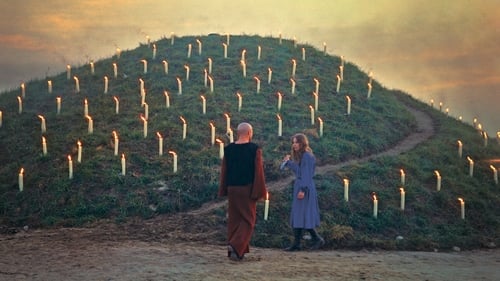
Oresztész
El drama de Eurípides es puesto en escena en una enorme llanura. Cientos de extras, un par de docenas de caballos, faisanes y palomas moviéndose y bailando en el terreno, mientras la cámara se desplaza entre la multitud. Es un "tour de force" coreográfico, especialmente considerando que la película tiene apenas una docena de planos largos.
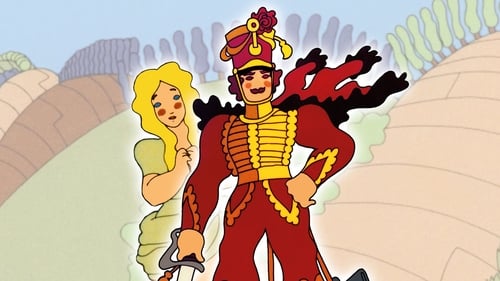
Jancsi (voice)
A traditional Hungarian poetic fairytale that describes the epic adventures of a young shepherd through love, war, magic and death.
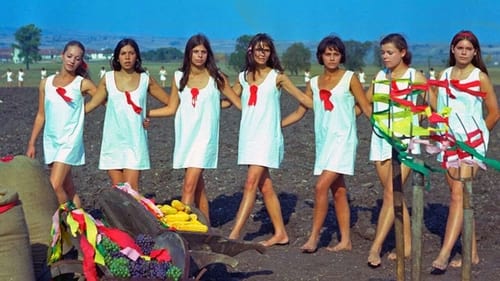
Socialist
La rebelión de los campesinos húngaros de fines del siglo XIX contra los terratenientes que los explotan, es narrada por Miklós Jancsó con un ritmo musical, que da a la obra la impronta de un ritual. Las primeras tentativas de la revuelta fallan, pero el espíritu revolucionario pronto volverá a estallar... (FILMAFFINITY)

Ambrus Dani
The heroines of this lyric comedy full of burlesque elements are two girls from a village who get totally engrossed in their day-dreaming. Ida and Rozi escape to the city to catch husbands for themselves.

Vitatkozó
After the World War I, enthusiastic young people found the intellectual group of Hungarian Communist Party. Their aim is to propagate the communist ideology to the people and get the workers on their side. They have fierce discussions on the new ideas, though their movement is not very successful. They clash with their opposition, attempt to lead people to the Red Army, but without success.

Andi, Ágnes bátyja
The film take place in Budapest, in the end of The World War II, telling the story of a young Communist who escaped from prison. The boy tries to revitalise his contact with the movement, but he is told to be quiet and wait.


































































